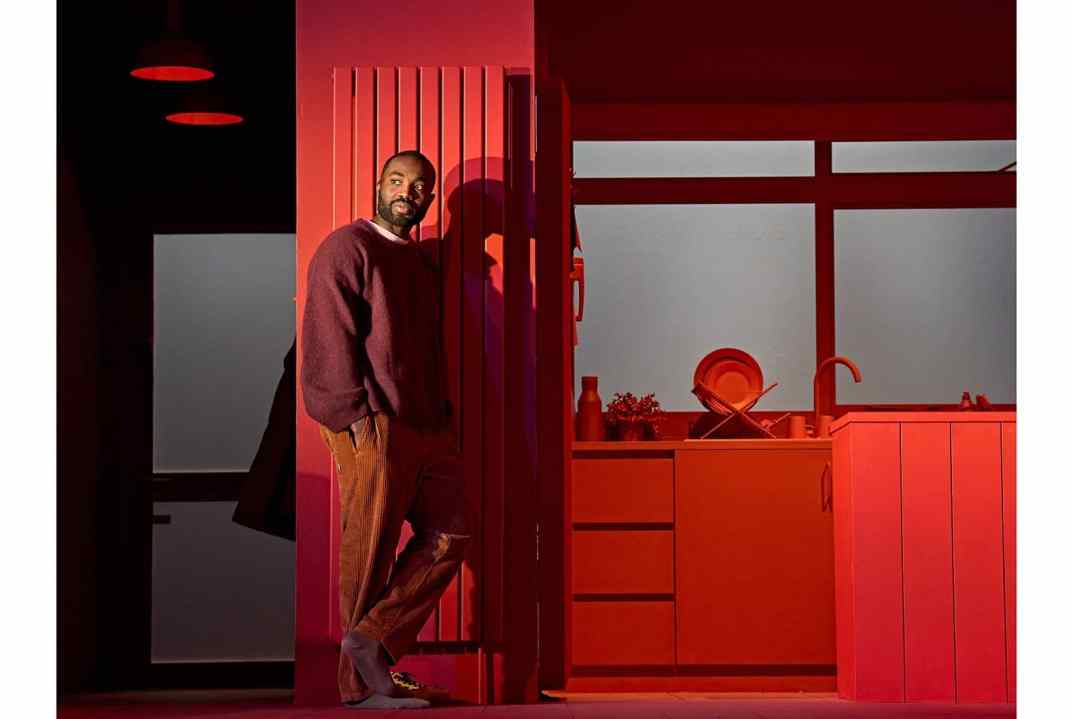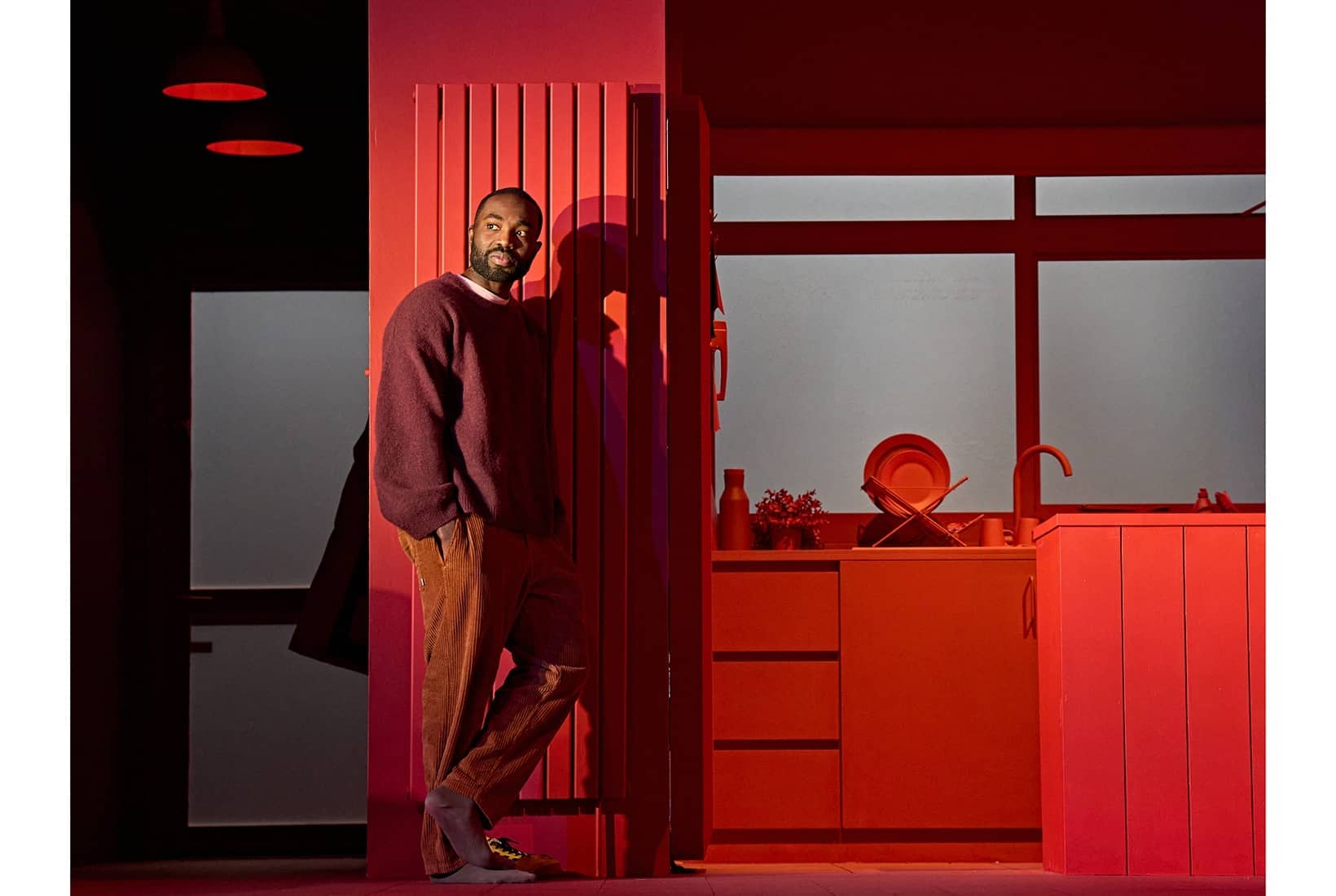A Number, by Caryl Churchill, is a sci-fi drama of impenetrable complexity. It’s set in a future society where cloning has become possible for those on modest incomes. A Cockney father reveals to his grown-up son that he’s a replica of his older brother who died, aged four, in a car crash that also killed his mum. The son reacts with anger and bafflement. But Dad soothes him with happy news. The boy’s DNA was stolen by a gang of scientists who created 20 more copycat zombies, and these replicas are now scattered across the globe. Dad plans to cash in by suing the boffins for £5 million.
No sooner has Dad finished this yarn than he admits it’s untrue. The mother didn’t die in a car crash and the timeline he gave was incorrect. At which point the poor playgoer starts to wonder what fresh hoaxes are about to be pulled by this sloppy and amateurish dramatist. The son (played by Paapa Essiedu) meets his cloned brother (also played by Paapa Essiedu). We don’t see the meeting because there’s only one Paapa Essiedu. The boys argue. Violence is in the air. One Essiedu kills the other and the script turns into a murder mystery.
We revere scribblers like Churchill, who can’t write a single sentence that anyone would want to repeat
But not for long. Dad hops over to the US and meets a third cloned son (played by Paapa Essiedu). The American lad is a friendly buffoon whose dimwitted chatter is presented for comic effect while his solemn English father listens with an air of long-suffering superiority. (NB: Americans rightly loathe that kind of British condescension.) As for the father’s court case against the evil boffins, that’s forgotten. The murder of Paapa Essiedu by Paapa Essiedu is quietly sidelined. And then comes a suicide (Paapa Essiedu again), which barely affects those who are close to the victim.
But the gravest problem with this tangle of nonsense is the lack of action on stage. It’s just an hour of four blokes bickering and moaning about stuff that happened decades ago. Churchill wants to dabble in several genres at once — science fiction, whodunnit and courtroom drama — but she clearly has no interest in any of them. And if the dramatist doesn’t care, who else will? The script, very brilliantly, uses the kind of fractured dialogue that imitates the pauses and missteps of real talk. But her skill disguises the fact that no character says anything valuable or interesting. The viewer is beguiled by the naturalism of the conversation and forgets that this broken idiom can’t deliver insights or wisdom. Anything that’s worth saying has to be expressed in fluent, quotable language and not in the halting, jumbled shards of everyday chitchat. It’s bizarre that we revere scribblers, like Churchill, who can’t write a single sentence that anyone would want to repeat.
The National Theatre’s vast resources have been placed at the disposal of Emma Rice for her adaptation of Wuthering Heights. And that’s the problem. Too much of everything. The story vanishes beneath a cascade of songs, dances, sound effects and distracting video clips showing clouds scudding across the Yorkshire moors. The actors wear hats made from twigs or sprouts of moss. Most of their costumes don’t fit. Barmy props built from vandalised chairs clutter the stage. Every dramatic moment is treated as a zany joke — like a Spike Milligan sketch without any gags. Even a mother’s death during childbirth isn’t treated seriously. Pity the poor performers.
It takes hard work to make a beautiful actress like Lucy McCormick seem sexless and unattractive but that’s the achievement of this show. She plays Cathy as a screeching, honking basketcase with crazy hair and tasteless, baggy clothes. Any sane man would sprint for the exit if she arrived at a party.
Her lover, Heathcliff, is an orphan from Jamaica adopted on a Liverpool dockside by old Mr Earnshaw. His nasty, bullying siblings treat him to numerous kickings. (The show is full of ugly violence.) Despite being raised in Yorkshire the young outcast clings to his Caribbean lilt and when he escapes from the family home he sets off in search of his fortune. Years later he returns in a blinged-up white-and-gold suit, still talking like Bob Marley. He’s turned into Heathspliff.
This role is superbly played by the handsome Ash Hunter who has a lovely voice and a powerful, smouldering stillness. Yet he’s the only one who brings any hint of the novel’s romance, wildness and mystery. The only other bright point in this barrage of Brontë-phobia is Katy Owen’s humorous turn as Isabella. Owen can deliver a ribald line with just the right amount of sauce — ‘I like to slide down the bannister because it tickles my tuppence.’ And she can bend her limbs amusingly which suggests that she could make ballet look funny. She’s a big find.








Comments